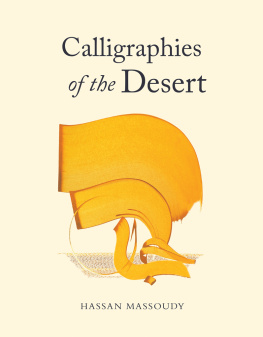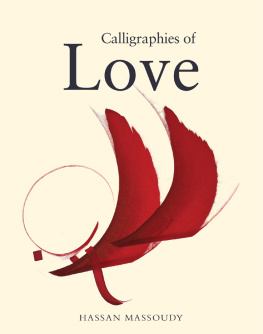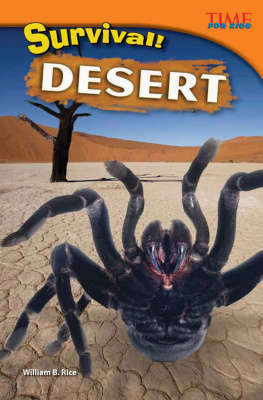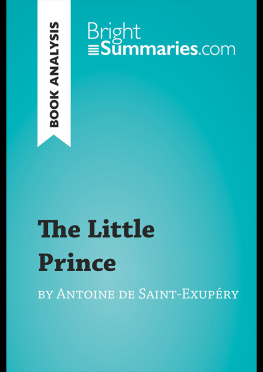CALLIGRAPHIES of the DESERT Published 2020 by Saqi Books Copyright Hassan Massoudy 2020 Translation from French Sophie Lewis 2020 Translation from Arabic Jonathan Wright 2020 Translation from Latin and Greek Elizabeth Briggs 2020 All rights reserved. No part of this book may be reproduced or transmitted in any form or by any means, electronic or mechanical, including photocopying, recording or by any information storage and retrieval system, without permission in writing from the publisher. Design by Will Brady ISBN 978-0-86356-177-1 eISBN 978-0-86356-182-5 A full CIP record for this book is available from the British Library. Printed by PBtisk s.a. SAQI 26 Westbourne Grove, London w2 5RH www.saqibooks.com  We go on dreaming of the lands we love I felt drawn to Africa by an imperious compulsion, by a yearning for the unknown desert, as if in anticipation of a passion as yet unborn. Guy de Maupassant INTRODUCTION I t was 1973 in Algeria and we were crossing the stony plateau of southern Oran, in a bus bumping along a road straight as a die up to its vanishing point. I had seen our first Bedouin tent and our first camel. Hassan and I were going to An Sefra.
We go on dreaming of the lands we love I felt drawn to Africa by an imperious compulsion, by a yearning for the unknown desert, as if in anticipation of a passion as yet unborn. Guy de Maupassant INTRODUCTION I t was 1973 in Algeria and we were crossing the stony plateau of southern Oran, in a bus bumping along a road straight as a die up to its vanishing point. I had seen our first Bedouin tent and our first camel. Hassan and I were going to An Sefra.
A few houses lay half-buried beneath the ochre sand. Of course I found the desert beautiful, but I felt no special attraction to it. I should add that it was July and my body, which had never previously been outside Europes temperate climates, had other concerns than a full appreciation of the landscape. A few years later, we crossed Tunisia, going as far as Douz. The dunes there were of a paler sand, luminously white. The powerful attraction and the dream began there.
In Egypt, we returned to the desert on two occasions but still it remained impervious to us. Naturally its appeal grew all the greater and I was seized with an irresistible desire to go, and go straight into it. For his part, Hassan began to extract from his reading statements about the desert, about its silence and its space. Then he began to hand-write these lines in shades of sand while dreaming of the Iraqi childhood in Najaf, a spiritual desert hidden deep in his heart. Then one day the desert came to us, opened up to us, in Mauritania, beyond Chinguetti. This long-dreamed-of desert was there, but quite different.
A true desert, crushing and exalting at once, majestic, with a fluid, ungraspable sand, a desert of sensual, flesh-coloured dunes. My life was as if suspended, my eyes fixed upon the space. There, like so many before me, I was caught, spellbound. Leaving was a great wrench; nowhere else had impressed me to such a degree. And from the moment of my departure, I thought of only one thing: how to return. No man can live this life and emerge unchanged.
He will carry, however faint, the imprint of the desert, the brand which marks the nomad; and he will have within him the yearning to return, weak or insistent according to his nature. For this cruel land can cast a spell which no temperate clime can match. Wilfred Thessiger Arabian Sands My understanding of the desert is, of course, this idealised vision, that of a tourist only briefly passing through. I am aware that its a harsh realm, sometimes deadly, even. In order to recover a little of that desert in Paris, I shut myself away to read of sand and silence. Since Antiquity, the desert has awed and fascinated mankind. Some of those who lived in the desert or who had merely glimpsed or dreamed it, expressed in their writings a fair share of the emotions I had felt but could not yet express in words.
I therefore decided to copy passages from these texts into a small notebook, restricting myself to deserts of the Arab lands. If this collection gives more space to the texts of European travellers, that is quite simply because for them the desert has been a greater fascination than for Arab writers who tended more readily to sing the praises of the oasis, with its springs and gardens. As the year went by, I filled my notebook, and then a second one too. Hassan had also felt the same enchantment but he expressed himself in a different mode. His calligraphy took on the ochre, yellow and pink hues of the setting sun. His lines closely paralleled the hollows of the dunes.
And then life swept us towards other dunes, those of Mauritania, Algeria and Morocco. I carried my little notebooks with me. The desire seized me to reread them in the solitude of the desert, in the very place where they had been conceived, as if to pay homage to those who had crossed it and suffered there, where some had died, yet where none had remained unmoved by it. Every evening, at the hour when the desert turns rosy-pink, sitting at the peak of a dune, I would read their texts aloud. Now I share them with you Isabelle Massoudy  You fled to the desert on the wings of the heart The desert was lost in the realm of your heart What can this desert be? The seven sublime heavens Are like the palm of a hand beside the ocean of your heart.
You fled to the desert on the wings of the heart The desert was lost in the realm of your heart What can this desert be? The seven sublime heavens Are like the palm of a hand beside the ocean of your heart.  Jalal El Din Rmi (120773)
Jalal El Din Rmi (120773)
 Though your mouth glows, and your skin is parched, yet you feel no languor, the effect of humid heat; your lungs are lightened, your sight brightens, your memory recovers its tone, and your spirits become exuberant; your fancy and imagination are powerfully aroused, and the wildness and sublimity of the scenes around you stir up all the energies of your soul whether for exertion, danger, or strife.
Though your mouth glows, and your skin is parched, yet you feel no languor, the effect of humid heat; your lungs are lightened, your sight brightens, your memory recovers its tone, and your spirits become exuberant; your fancy and imagination are powerfully aroused, and the wildness and sublimity of the scenes around you stir up all the energies of your soul whether for exertion, danger, or strife.
Your morale improves; you become frank and cordial, hospitable and single-minded: the hypocritical politeness and the slavery of civilisation are left behind you in the city. Richard Burton (182190) Silence upon sand Silence beneath a sand-coloured sky.  Odette du Pauigaudeau (18941991)
Odette du Pauigaudeau (18941991)

 To speak of the desert, should we not, first of all, be silent? Theodore Monod (19022000)
To speak of the desert, should we not, first of all, be silent? Theodore Monod (19022000) Every atom of silence is the chance of a ripe fruit!
Every atom of silence is the chance of a ripe fruit!  Paul Valry (18711945)
Paul Valry (18711945)

Next page







 We go on dreaming of the lands we love I felt drawn to Africa by an imperious compulsion, by a yearning for the unknown desert, as if in anticipation of a passion as yet unborn. Guy de Maupassant INTRODUCTION I t was 1973 in Algeria and we were crossing the stony plateau of southern Oran, in a bus bumping along a road straight as a die up to its vanishing point. I had seen our first Bedouin tent and our first camel. Hassan and I were going to An Sefra.
We go on dreaming of the lands we love I felt drawn to Africa by an imperious compulsion, by a yearning for the unknown desert, as if in anticipation of a passion as yet unborn. Guy de Maupassant INTRODUCTION I t was 1973 in Algeria and we were crossing the stony plateau of southern Oran, in a bus bumping along a road straight as a die up to its vanishing point. I had seen our first Bedouin tent and our first camel. Hassan and I were going to An Sefra. You fled to the desert on the wings of the heart The desert was lost in the realm of your heart What can this desert be? The seven sublime heavens Are like the palm of a hand beside the ocean of your heart.
You fled to the desert on the wings of the heart The desert was lost in the realm of your heart What can this desert be? The seven sublime heavens Are like the palm of a hand beside the ocean of your heart.  Jalal El Din Rmi (120773)
Jalal El Din Rmi (120773)
 Though your mouth glows, and your skin is parched, yet you feel no languor, the effect of humid heat; your lungs are lightened, your sight brightens, your memory recovers its tone, and your spirits become exuberant; your fancy and imagination are powerfully aroused, and the wildness and sublimity of the scenes around you stir up all the energies of your soul whether for exertion, danger, or strife.
Though your mouth glows, and your skin is parched, yet you feel no languor, the effect of humid heat; your lungs are lightened, your sight brightens, your memory recovers its tone, and your spirits become exuberant; your fancy and imagination are powerfully aroused, and the wildness and sublimity of the scenes around you stir up all the energies of your soul whether for exertion, danger, or strife.

 To speak of the desert, should we not, first of all, be silent? Theodore Monod (19022000)
To speak of the desert, should we not, first of all, be silent? Theodore Monod (19022000) Every atom of silence is the chance of a ripe fruit!
Every atom of silence is the chance of a ripe fruit! 
